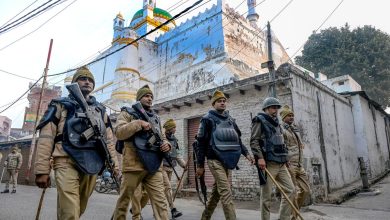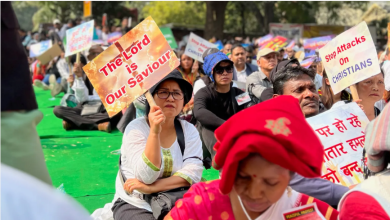India implements ‘anti-Muslim’ 2019 citizenship law weeks before election
 New Delhi: The Indian government has notified the rules for the Citizenship Amendment Act (CAA), weeks before Prime Minister Narendra Modi seeks a rare third term for his Hindu nationalist government.
New Delhi: The Indian government has notified the rules for the Citizenship Amendment Act (CAA), weeks before Prime Minister Narendra Modi seeks a rare third term for his Hindu nationalist government.
According to Kashmir Media Service, the controversial law passed in 2019 by Prime Minister Narendra Modi’s government allowed Indian citizenship to non-Muslim refugees from India’s neighbouring countries.
It declared the Hindus, Parsis, Sikhs, Buddhists, Jains and Christians who fled to Hindu-majority India from mainly Muslim Afghanistan, Bangladesh and Pakistan before December 31, 2014 were eligible for citizenship.
The law was declared “anti-Muslim” by several rights groups for keeping the community out of its ambit, raising questions over the secular character of the world’s largest democracy.
Modi’s government had not drafted the rules for the law following protests over the passage of the law in December 2019. Violence broke out in capital New Delhi during the protests in which dozens, most of them Muslims, were killed and hundreds injured during days of rioting.
“The Modi government announces implementation of the Citizenship Amendment Act,” a government spokesman said.
“It was an integral part of BJP’s 2019 [election] manifesto. This will pave [the] way for the persecuted to find citizenship in India.” he said, referring to the ruling Bharatiya Janata Party.
Muslim groups say the law, combined with a proposed National Register of Citizens (NRC), can discriminate against India’s 200 million Muslims – the world’s third-largest Muslim population. They fear the government might remove the citizenship of Muslims without documents in some border states.








